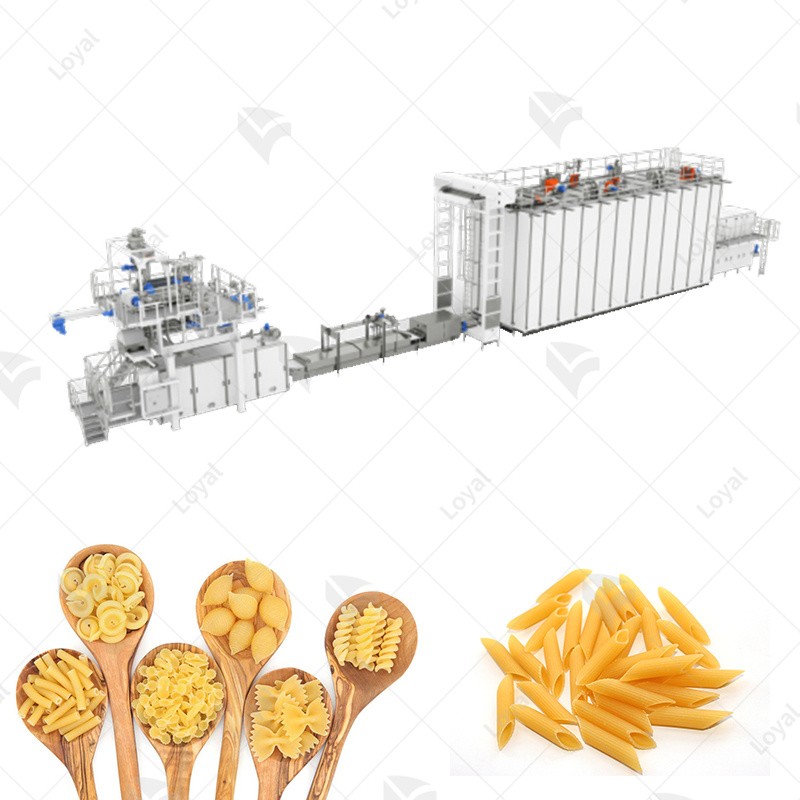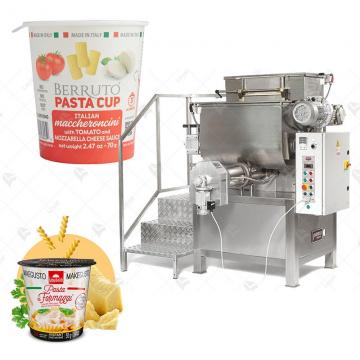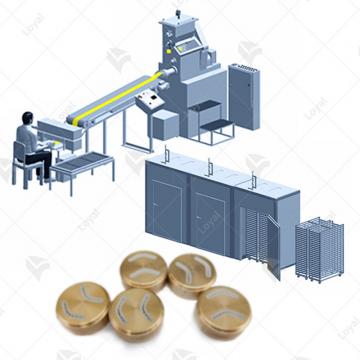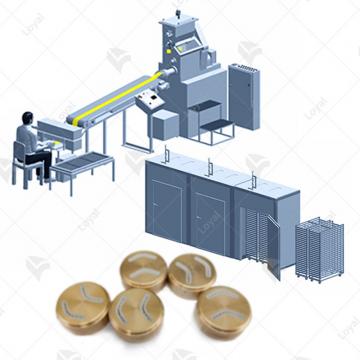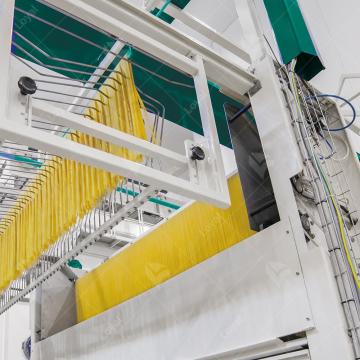Cutting-Edge Technology: Pasta Manufacturing Companies Embrace Full Automation for Enhanced Efficiency and Energy Conservation
Cutting-Edge Technology: Pasta Manufacturing Companies Embrace Full Automation for Enhanced Efficiency and Energy Conservation
The pasta processing equipment industry has undergone a significant transformation in recent years, with a focus on achieving unparalleled efficiency and optimal energy conservation. As consumers increasingly demand high-quality pasta products, pasta manufacturing companies are turning to full automation solutions to meet these expectations. This article explores the evolution of automation in the pasta manufacturing sector, delving into the challenges, benefits, and case studies of companies at the forefront of this technological revolution.Shandong Loyal Industrial Co., Ltd. has incorporated advanced technologies from Capitanio and HEMAKS in the production of its macaroni.

Evolution of Automation in Pasta Manufacturing
Historical Perspective
The journey of automation in pasta manufacturing dates back to the early stages of industrialization. Initially, manual labor dominated the production process, but advancements in technology paved the way for automation. As pasta manufacturing companies recognized the need for efficiency, the integration of machinery became a pivotal turning point.
Technological Advancements
In recent decades, technological advancements have propelled the pasta manufacturing industry into a new era. Automation solutions now encompass sophisticated machinery, artificial intelligence, and data analytics. This evolution has not only streamlined production processes but has also laid the foundation for optimal energy conservation in line with sustainability goals.
Full Automation Solutions in Pasta Manufacturing Companies
Implementation Challenges and Solutions
The implementation of full automation in pasta manufacturing companies comes with its share of challenges. However, industry leaders have overcome these hurdles by investing in comprehensive training programs and collaborating with experts in food machinery. The seamless integration of automated systems has revolutionized the way pasta is produced, ensuring consistency and quality.
Integration of Cutting-Edge Technologies
Pasta manufacturing companies are embracing cutting-edge technologies, such as robotic arms, smart sensors, and machine learning algorithms, to enhance the automation process. This integration not only improves efficiency but also contributes to substantial energy savings. The synergy of these technologies has positioned these companies as pioneers in the industry.

Benefits of Full Automation
Enhanced Production Efficiency
Full automation in pasta manufacturing companies results in enhanced production efficiency. The precision and speed of automated systems lead to increased output without compromising product quality. This efficiency is crucial in meeting the growing demand for pasta products worldwide.
Optimal Energy Conservation
An inherent benefit of full automation is optimal energy conservation. Automated systems are designed to operate with energy-efficient mechanisms, reducing the overall carbon footprint of pasta manufacturing companies. This aligns with the global push towards sustainable and eco-friendly practices.
Cost Savings and Resource Optimization
In addition to efficiency and energy conservation, full automation brings about substantial cost savings. By optimizing resources and minimizing waste, pasta manufacturing companies can achieve a more cost-effective production process. This economic advantage further solidifies the appeal of full automation.
Case Studies: Pasta Manufacturing Companies Leading the Way
Success Stories in Full Automation
Several pasta manufacturing companies have successfully implemented full automation, showcasing remarkable success stories. Notable brands such as De Cecco, Creamette, and San Giorgio have embraced automated production lines, setting new standards for the industry.
Impact on Overall Operations
Exploring the impact of full automation on overall operations, this section delves into how automated processes have positively influenced product consistency, quality control, and timely delivery. Insights from industry experts highlight the transformative effect of automation on pasta manufacturing companies.
Future Trends and Innovations
Emerging Technologies in Pasta Manufacturing
The article explores the future landscape of pasta manufacturing, discussing emerging technologies set to further revolutionize the industry. From smart factories to predictive maintenance, these innovations are poised to shape the future of automated pasta production.
Anticipated Developments in Automation
Anticipating future developments, this section provides a glimpse into the continuous evolution of automation in pasta manufacturing. Insights from industry experts and technological forecasts shed light on the trajectory of automation and its potential impact on the industry.
Conclusion
In conclusion, the integration of full automation in pasta manufacturing companies represents a pivotal moment in the industry's history. From overcoming challenges to reaping benefits, the journey towards unprecedented efficiency and optimal energy conservation is reshaping how pasta is produced globally. As pasta manufacturing companies continue to innovate, the future holds exciting possibilities for the convergence of technology and culinary excellence.

FAQs: Common Questions about Pasta Manufacturing Companies
1.How do pasta manufacturing companies implement full automation?
Pasta manufacturing companies implement full automation through a systematic process. Initially, a thorough assessment of existing production processes is conducted. This is followed by the identification of areas where automation can enhance efficiency. Companies then invest in state-of-the-art machinery, such as robotic arms and smart sensors, to streamline the production line. Comprehensive training programs ensure that personnel can operate and maintain these automated systems effectively.
2.Which pasta manufacturing companies have successfully embraced full automation?
Several leading pasta manufacturing companies have successfully embraced full automation to achieve unprecedented efficiency and optimal energy conservation. Notable examples include De Cecco, Creamette, San Giorgio, Great Value, Ronzoni, Colavita, La Molisana, and Banza. These companies serve as benchmarks for the industry, showcasing the transformative impact of automation on pasta production.
3.What are the environmental benefits of full automation in pasta manufacturing?
Full automation in pasta manufacturing brings significant environmental benefits, primarily through optimal energy conservation. Automated systems are designed to operate efficiently, minimizing energy consumption and reducing the overall carbon footprint of the production process. Additionally, the optimization of resources and reduction in waste contribute to a more sustainable and eco-friendly approach to pasta manufacturing.
4. How does full automation contribute to cost savings?
Full automation contributes to cost savings in various ways. By streamlining production processes and minimizing manual labor, companies can achieve higher efficiency and output. This, in turn, reduces operational costs. Additionally, automated systems are designed for resource optimization, leading to less waste and further cost savings. The economic advantages of full automation make it an attractive investment for pasta manufacturing companies.
5. What is the future outlook for automation in the pasta manufacturing industry?
The future outlook for automation in the pasta manufacturing industry is promising. Emerging technologies, such as smart factories and predictive maintenance, are set to further enhance efficiency and sustainability. Industry experts anticipate continuous innovation, with automation becoming an integral part of the industry's evolution. As pasta manufacturing companies continue to embrace technological advancements, the future holds exciting possibilities for the continued growth and transformation of the industry.

